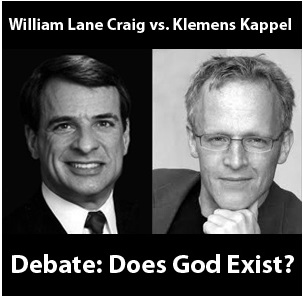If you’re reading this, you likely have an interest in either finding evidence for the Christian faith, or presenting evidence to defend your faith. The endeavor to defend the faith is known as apologetics. When doing apologetics we often have a focus on presenting evidence or reasons to believe in the Christian faith. That is why you see apologetics ministries with names like Reasonable Faith[1] or Reasons to Believe[2] and even my own Rational Faith. In this age dominated by Science and scientism[3] many have identified the need to defend Christianity against pervasive claims that modern minds cannot believe in the ancient claims of Christianity because many of those claims appear unscientific or outright impossible and are therefore unbelievable. After all how can the modern mind believe in a 7 day creation and a 6000 year old universe; and an original Adam and Eve when the modern scientific community is telling you the universe is some 13.7 billion years old, and humans were not created, they evolved?
Category Archives: Rational Thought
Conspiracy Theory: You Killed JFK (And other false claims and abuses of Evidence)
NO EVIDENCE. In what amounts to an abuse of evidence, atheists are fond of saying that there is no evidence for the existence of God. If you doubt that, take a look at this brief collection of atheists telling the world that very thing. But is that a true claim? When a proposition is not true, you would expect to find no evidence for that proposition.
Take for example the proposition in the title – that you, yes you dear reader – killed JFK on the fateful day – November 22, 1963 at Dealey Plaza in Dallas. All reading this could no doubt refute that claim. But those born after that date have a particularly easy and obvious piece of evidence that falsifies the proposition. The claim that they weren’t even born yet backed with a birth certificate to prove it. Continue Reading
Scientific creeds reveal hidden scientific faith
There have been many famous creeds offered about science by scientists. And I use creed in the normal sense, which as Google defines it is:
“a system of Christian or other religious belief; a faith.”
So to be precise I’m using it in the sense of the faith of scientists. While they don’t like to admit it, materialists scientists do indeed have faith in a belief that underlies all their theories – the physical world is all there is. This faith is typically encapsulated and expressed in what often becomes a well-known adage. Here’s a couple:
“The COSMOS is all that is or ever was or ever will be.”1
Carl Sagan starts “Cosmos” – both his book and TV Series – with this statement of faith. Here’s another from evolutionary biologist Theodosius Dobzhansky:
“Nothing in biology makes sense except in the light of evolution”2
In case you didn’t notice, both of these are statements of faith. How can we tell? Easy. These are not testable hypotheses based on specific evidence(s). They are general statements which support a specific worldview (a materialist one) clearly intended to discredit other approaches to science. Another dead give away – when other scientists point out serious problems with the associated theory, instead of re-examining the theory, they get angry with the questioner for daring to question them.
Consider the Cosmos statement. Most materialist scientists are firmly in the big bang camp. Yet such scientists can not say the cosmos always was because according to the big bang, there was a time when the cosmos wasn’t. (For Christian apologists, this leads naturally to the Kalam cosmological argument which I discuss in Enraging the Dragon.) Thus for Sagan, since neither he nor anyone else has any evidence the Cosmos always “was”, (in fact the evidence is to the contrary) that is a statement of faith. As for Dobzhansky, who tries to at once both affirm evolution and discredit creationism, the faith based nature of his statement has become apparent as many biologists, and other scientists have reached the conclusion that evolutionary theory is quite unnecessary for true science to progress.3
Man, being a creature of faith, can’t help but espouse some type of faith, so I don’t begrudge scientists their faith. No, the issue I have is with the various pretenses they don as a masquerade, in efforts to mislead the public. In disguising their faith they also disguise the motivations of the resulting behaviors – such as what to research. What pretenses are donned, you ask? Glad you asked: Continue Reading
Is Faith Rational?
1. How can faith be rational, when faith means believing in something with no evidence? Or: 2. Is Faith/belief in God/belief in miracles compatible with science?
Starting with the second question – Faith in God and belief in miracles are compatible with science because faith and science are complimentary; not contradictory. There are questions that science is not equipped to handle. In such cases it doesn’t mean the item the question isn’t real; it simply means that science is incapable of answering the question. One such item, as author, scientist and theologian Alistair McGrath points out is this:
The answer clearly is no, science can’t answer it. And why not? Famous evolutionary biologist and historian of science Stephen Jay Gould suggests it’s because science and religion deal with different spheres of knowledge – “magisteria” as he called them – and they do not overlap. Science and religion are thus Non-Overlapping Magisteria (NOMA)[2] – so the one can not comment on the other. This formulation is close. Science can not see or measure the spiritual world, so it can not comment on it; but God, who is spirit (John 4.24) sees both the spiritual and material world, and thus can comment on both as an eye witness. Thus regarding the creation of the world, what you have in Genesis 1 is an eye witness account of the creation of the heavens and the earth in 6 days, and recorded as evidence – a testimony for all time. In passing, God as an eye witness to the creation is something science can not disprove. They can disagree with his testimony, (which they do) and disbelieve he even exists (which they do), but they can not prove he does not exist. Neither can they provide an eye witness to their version of creation – the big bang. They say believing God’s testimony can only be done by faith. Okay, so what is it when you believe George Washington was the first president? No one alive today was there to see it. All we have are testimonies. Is that not then, also faith? Yet no one asks scientists to prove George Washington was the first president, or prove that he existed. They take both to be true on the word of historians. Biblical testimony is no different. So why is faith in God’s written testimony any less rational than believing written testimonies that George Washington was the first president? If doubters of the Biblical account still want “proof” one can say creationists have higher quality “proof” than scientists – since in addition to scientific evidence, creationists have an eye witness account by a perfect witness while science merely has a of highly disputed theory – the big bang[3] which is backed by highly disputed evidence. Indeed the more we learn, the more the big bang is discredited. The universe is both too young for the theory to be true (for more on that see Saturn’s Rings are Young!) and recent discoveries like the Higgs Boson (the so called “god particle”) contradict the Big Bang theory. (For more on that see Testimony of the Higgs Boson.) So faith expressed as belief that God exists is rational; it is consistent with how we use “faith” in other spheres, and it is consistent with science. But some people don’t agree with that assessment for reasons that take us back to the first question: “How can faith be rational?” (implied: when science can’t see the evidence to prove it). This is perpetuated by a chorus of acolytes echoing the refrain:
What’s always amusing about these statements is the claim there is no evidence. Because the first thing they typically do is list the evidences then explain why they refuse to believe it. First off they want to eliminate the Bible as evidence because it’s well – the bible – a holy book. They never seem to realize they are committing the fallacy of a false analogy when they compare the Bible to a book of mythology or even other holy books. Unlike mythology and other “holy” books the Bible is full of verified history, fulfilled prophecy (we’ll note one below), known, verified historical people, and geographical locations that exist to this day that you can visit. That makes it a reliable source of information. In fact regarding reliability of the key section of the Bible that records the life, death and resurrection of Jesus – the New Testament – author and apologist Josh McDowell states:
|
||||||
Does where you’re born determine what you believe?
 |
Is your faith merely a product of your location and culture? |
Here’s a conceit that atheists allow themselves that would be amusing if it weren’t so utterly false and insulting to everyone who’s not an atheist. It goes something like this:
If you believe in God, you’re a slave to beliefs imposed upon you in your youth. You’re a slave to the beliefs from the area of the world and culture you grew up with. On the other hand if you’re an atheist, you’re not subject to such imposition, and have freed yourself of such beliefs. Of course they don’t put it that way, they usually phrase it something like this:
Dear theists: If you were born in India you’d be Hindu if you were born in Iraq you’d be Muslim if you were born… I’d still be an atheist
— Atheist World (@AtheistWorld)
August 29, 2013
Did you catch the conceit? Apparently, atheists believe they are somehow superior and they and only they have the power to choose what they believe. They thereby implicitly state that theists are weak and ignorant; and explicitly state theists are slaves to whatever belief was imposed upon them while they were growing up. What remains unanswered is for atheists who grew up in a family with theistic beliefs, why they too didn’t remain a slave to such beliefs?
Others1 have addressed this topic, but let me try to succinctly add some glaring issues with this argument:
First off it’s logically fallacious, falling to the logical fallacy of Special Pleading -where the arguer finds fault with a particular proposition or situation; yet they themselves fit the proposition or situation. Nonetheless they believe their conclusion does not apply to them – and provide no reason for believing themselves to be the exception. This is a classic case of irrational special pleading.
Secondly, many atheists continue to believe that Continue Reading
Theism – Perfectly Rational
 In the debate between Craig vs. Kappel on the topic “Does God Exist” the question “Why should we believe atheism is true?” comes up.Kappel is unable to explain why anyone should believe in atheism while Craig provides 6 reasons right off the bat while theism is true. |
||||
In a debate held April 18, 2012 in Copenhagen, Christian apologist and philosopher William Lane Craig debated atheist philosopher Klemens Kappel on the topic: “Does God Exist?” I couldn’t resist posting this clip – for a number of reasons, namely: A. Dr. Craig concludes Theism or “the God hypothesis” as he put it earlier – is “perfectly rational to hold to” – which is of course the theme of this site. B. Dr. Craig Lists the explanatory power of Theism over atheism, Theism can explain things such as:
(All good topics I should discuss one day.) C. In challenging Dr. Kappel to prove atheism is true, Dr. Craig points out a number of ways one can logically or rationally establish an argument, namely by:
When you watch, notice two things:
Now without further ado, the video:
Duane Caldwell | posted 4-30-2014 | print format |
||||
| 1 The posts mentioning an inference to the best explanation are:The Poor Marksmenship of Evolutionists andReclaiming the Intellectual and Moral High Ground |
What is Rational Faith? Part 2
 The 19th century classic “Flatland” by Edwin A. Abbott is an allegory of the resulting social problems and intellectual impasse that results when a person who has been enlightened (and sees a truth beyond what’s normally possible in the physical realm) tries to present that truth to the unenlightened. Flatland is so named because it, and all its inhabitants live in a two dimensional world. When a 3 dimensional object – a being in the shape of a sphere – is introduced to a 2 dimensional Flatlander – a mathematician – the response of humans to revelations (by way of analogy) is on display.
The 19th century classic “Flatland” by Edwin A. Abbott is an allegory of the resulting social problems and intellectual impasse that results when a person who has been enlightened (and sees a truth beyond what’s normally possible in the physical realm) tries to present that truth to the unenlightened. Flatland is so named because it, and all its inhabitants live in a two dimensional world. When a 3 dimensional object – a being in the shape of a sphere – is introduced to a 2 dimensional Flatlander – a mathematician – the response of humans to revelations (by way of analogy) is on display.
As you might expect, the mathematician has the all the concepts and mathematical knowledge to understand the description of a sphere, but while he understands technically what the sphere is saying, since a 3 dimensional object is outside of the realm of the possible within a 2 dimension world, he has a hard time believing what the sphere is saying is true – until the sphere performs miracles – that is to say feats that are miraculous to the two dimensional characters of the story, yet totally understandable to a 3 dimensional person (such as the reader). The main conflict of story centers around the beliefs of most flatlanders: since – as far as they are concerned – 3 dimensional objects are impossible and don’t exist, anyone who claims they are possible (or has seen one) is either insane or dangerous or both, and thus must be placed permanently in a mental institution or must be put to death. Without delving any further into the story, let me point out what Abbott so masterfully illustrates using concepts that we, as 3 dimensional beings, readily understand by his analogy: Continue Reading




